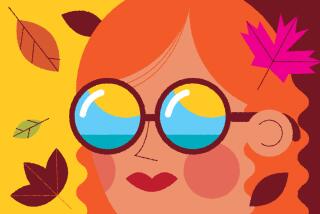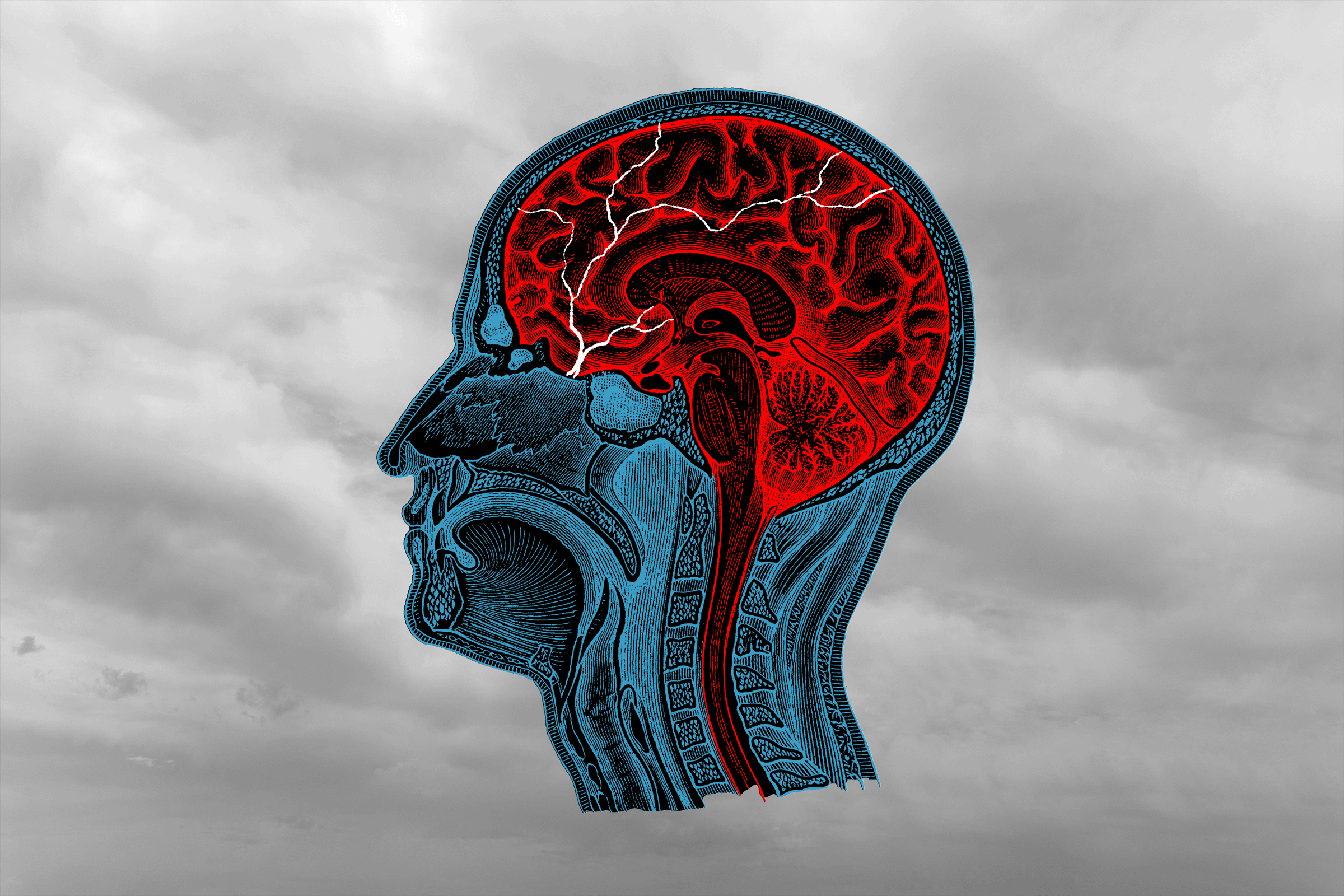Treating the Annual Holiday Blues : Shorter Days, Headaches Linked to Holiday Depression
- Share via
WASHINGTON — Every year, along with Santa Clauses and tinsel, intensified ad campaigns and all the other accouterments of the season, we are bound to hear about holiday depression.
The purported causes and cures of this seemingly inevitable seasonal affliction may vary widely depending on who has this year’s answer, and are probably as varied as the people out there who have it.
However, there are a few generalizations for almost everybody, and a few specific suggestions for especially vulnerable groups that can help ease the pressures of the season of peace and good will, a season that begins with Thanksgiving and continues through New Year’s Day.
Possible Causes
In the first place, a lot of people--many more than scientists first thought--suffer to some degree from “seasonal affective disorder.” For reasons not yet fully understood, the short winter days have a genuine depressive effect on some people, even children. According to Dr. Norman Rosenthal, who has been studying the disorder for several years and named it, victims tend to overeat, oversleep and be depressed in direct relation to the shortness of the days. The disorder may be what people have called holiday depression for so many years.
Bright fluorescent grow-lights, such as those made by the Durotest Corp., have helped some victims of the disorder, but they should not be used without consulting a specialist.
For some people there may be another factor: headaches. They don’t get more headaches because they’re depressed; instead, they’re depressed because they get more headaches during the holidays.
Dr. Joel Saper, a headache-and-pain specialist from Ann Arbor, Mich., has noticed over the years that his headache patients have special holiday problems. And what is more, he gets more new patients at this time of year as well. He said he believes he has found some of the reasons, and can offer some suggestions not for just making it through the holidays, but for making it through without a headache--or at least without an extra headache.
“What we started seeing,” said Saper, director of the Michigan Headache and Neurological Institute, “especially around the winter holidays, was a substantial number either of patients whose headaches had been well controlled suddenly break through therapy, or people who start for the first time to experience uncontrollable headaches.”
More and more, Saper is being convinced that “people who have headaches, who are frequently headache sufferers, are probably biologically prone to it. It is not just a matter of stress.”
Moreover, he said, the disorder that causes these headaches is probably found in the hypothalamus--the part of the brain that controls endocrine functions throughout the body, as well as biological body rhythms such as the daily sleep-wake and hunger cycles and helps control mood and emotions.
“If you think it through,” Saper said, “what triggers headaches is often one of those factors--disruptions of sleep, mood, hormones, body rhythms.”
Holidays, he said, “can be full of things that can disrupt any of those factors, and, in vulnerable people, trigger the headaches.”
Headache Factors
Some examples:
--The intensity of excitement. “It can be happy excitement, such as anticipation, a fervor of pleasing, of getting things done. Then there is the letdown the day after. We’ve known for a long time that both anticipatory stress and letdown are headache triggers.”
--The savaging of routines. “People running out of work during lunch hours to go shopping, working late to get things prepared, all the hustle and bustle wreaks havoc with biological rhythms. We know that people who are prone to headaches really need sameness. Their bodies want to go to bed at the same time and want to wake up at the same time. Holiday season can have an effect very like jet lag on susceptible people.
“Again, it is the hypothalamus. You’re keyed into a rhythm based on when you eat, when you sleep, when it gets dark, and what happens when you break across the rhythm is that you discombobble your system.
“To a lesser degree the same thing happens on weekends. The day is scattered, the day is randomized, whereas during the week, the time is spoken for, so to speak. Sameness and regularity are very important to the headache sufferer, and the excesses of the period--even changing bedtimes--can take their toll. Headache sufferers don’t do well in the carnival atmosphere.”
--The food and drink connection. More and more scientists are finding links between certain chemicals in foods and drinks, especially alcoholic ones, and severe headaches. When these are consumed occasionally, they may have little effect, but in the kind of concentrated doses we get during the winter holiday season, they can explode into migraines and other vascular headaches in people prone to headaches. Coupled with a general tendency to drink and eat more than usual, these triggering substances can disturb the hypothalamus (by breaking the regularity of meals) and trigger other chemical changes that result in throbbing heads. Triggering substances may be found in many liquors, cured meats, cheeses and some fruits like bananas.
--Smoke. Even if you don’t smoke yourself, “you are exposed to more smoking and that provokes headaches. And people who smoke tend to smoke more” during a holiday.
--Medicine loading. “During the holidays, as headaches tend to increase, patients quite automatically begin to take more and more of their analgesics. As the amount of medications increase, they begin to have a rebound effect and even more headaches occur. So by the end of the holidays they can be overwhelmed by pain that can no longer be controlled” by over-the-counter pills like aspirin, acetaminophen and ibuprofen. “On the other hand, the usual cues that remind headache-prone people to take their medicines might be missing so they may miss a crucial dose and get a headache that way.”
Then, people with headaches are no less susceptible to the traditional pressures of concentrated holidays than any of the rest of us.
The experts tell us--and many of us can confirm by experience--that because nobody older than 3 is going to come out of the holiday season without some disappointment, some of us feel that everybody else is having more fun. That is probably the most pervasive, widely touted cause of holiday depression, usually fleeting for most of us, but occasionally feeding into other problems and creating an unbearable load.
One way to stay low key, perhaps to avoid excess headaches and help forestall the rebound depression on the day after, is to get a couple of simple relaxation exercises under your belt and practice them faithfully--10 minutes in the morning and 10 at night--all the way through the holidays. They may not work miracles, but they might make January look a little less bleak.
--The “quieting reflex”: Developed by Connecticut psychiatrist Charles Stroebel, this technique is designed to undo the inappropriate fight or flight response:
What’s bothering you? Focus on it for a second and then: Smile inwardly (or outwardly if you’re alone) with your eyes and your mouth. Say to yourself, “I have an alert mind in a calm body.”
Take a deep breath and as you exhale, let your jaw, your tongue and your shoulders go limp.
Picture warmth flooding your body from the top of your head, down through your body, your arms and legs and out through your feet.
You can practice this anywhere--when you’re driving and one of those bike messengers makes you miss a light; when you miss the bus; when your boss hollers.
--The “relaxation response”: Developed by Harvard and Beth Israel Hospital cardiologist Dr. Herbert Benson, this technique is so easy it can’t possibly work, but it does.
Put yourself into a comfortable sitting position. (Don’t lie down; you’ll fall asleep.) Take deep breaths. As you exhale on each breath, concentrate on the number 1. If other thoughts invade your consciousness, just mentally brush them aside and keep focusing on 1. Do it for 10 minutes at a time.






